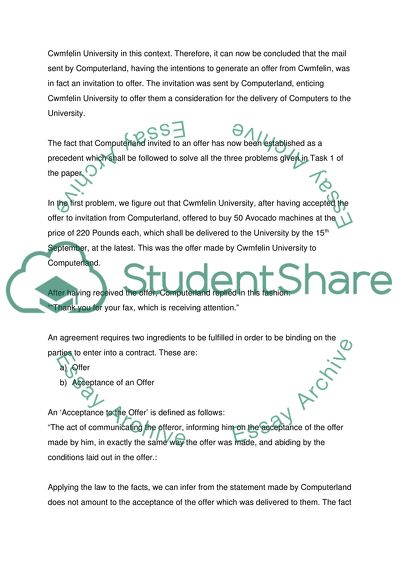Cite this document
(Law of Contract: Computerland and Cwmfelin University Case Study - 1, n.d.)
Law of Contract: Computerland and Cwmfelin University Case Study - 1. Retrieved from https://studentshare.org/law/1747887-law-of-contract
Law of Contract: Computerland and Cwmfelin University Case Study - 1. Retrieved from https://studentshare.org/law/1747887-law-of-contract
(Law of Contract: Computerland and Cwmfelin University Case Study - 1)
Law of Contract: Computerland and Cwmfelin University Case Study - 1. https://studentshare.org/law/1747887-law-of-contract.
Law of Contract: Computerland and Cwmfelin University Case Study - 1. https://studentshare.org/law/1747887-law-of-contract.
“Law of Contract: Computerland and Cwmfelin University Case Study - 1”, n.d. https://studentshare.org/law/1747887-law-of-contract.


